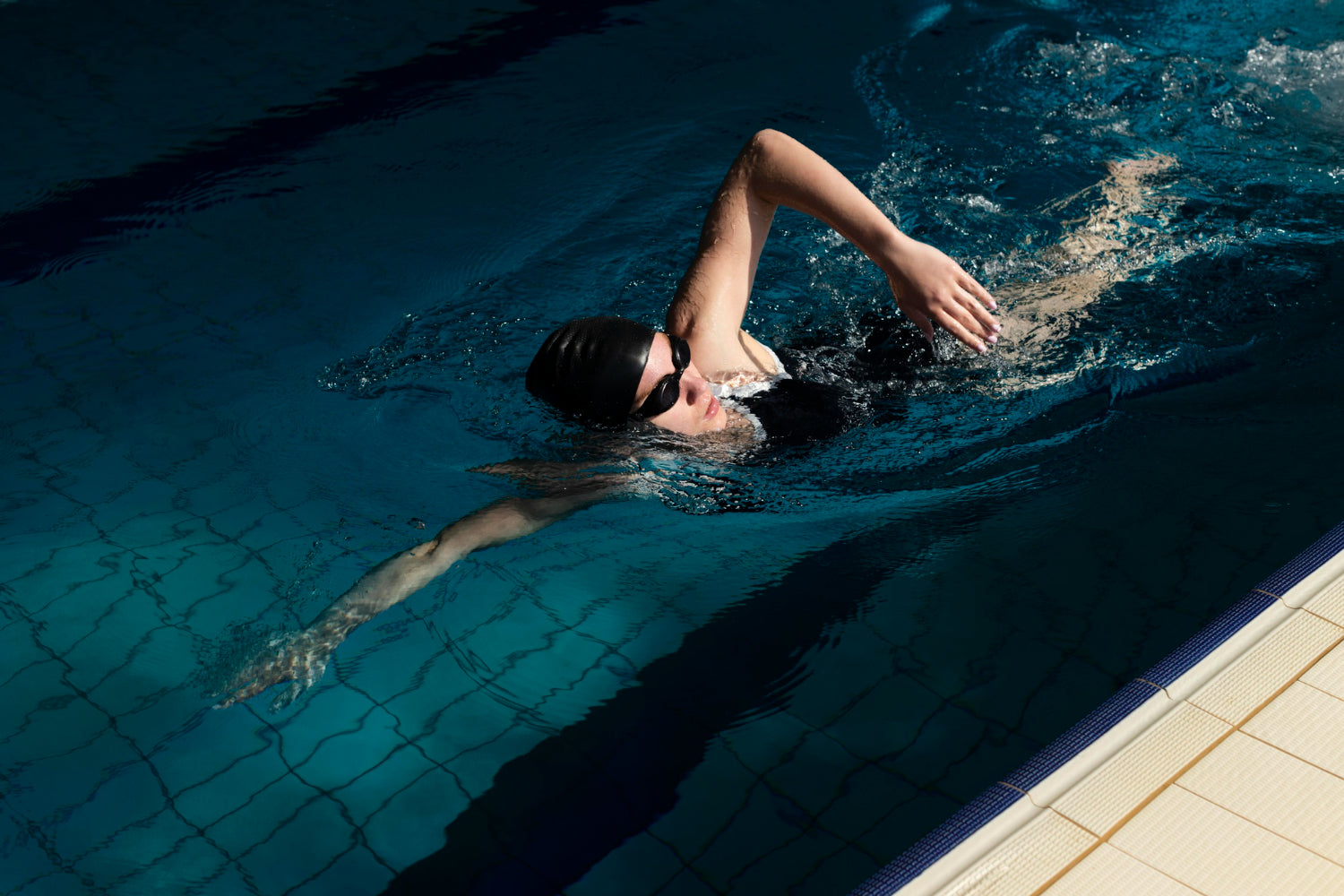Chlorine is an essential component in pools to keep them free from bacteria and other microorganisms. However, this substance can also be harmful to swimmers' skin. That's why it's important to protect it from its harmful effects, ensuring healthy dermis and avoiding issues.
With this in mind, we dedicate this post to explore how chlorine affects the skin, but more importantly, we'll focus on sharing practical tips to protect it properly. We'll discuss a series of general measures, including the use of dermatological products specifically designed for swimmers.
How does chlorine affect the skin?
Firstly, let's review some negative effects chlorine can have on the skin:
Dryness
Chlorine removes natural oils from the epidermis, leading to dryness and flaking. These natural oils form a protective barrier that retains moisture in the skin. Their loss can result in rough, dehydrated skin and may even lead to more serious issues like dermatitis.
Irritation
Prolonged exposure to chlorine can cause irritation and redness, especially in individuals with sensitive skin. This reaction can manifest as itching, burning sensation, or inflammation, particularly in delicate areas like the face, neck, and skin folds.
Acne and rashes
Chlorine can also clog pores, contributing to acne and other skin rashes. Mixing with oils and dirt on the skin can block pores, leading to comedones and acne breakouts.
Premature aging
The combination of chlorine and sun exposure can accelerate skin aging, causing wrinkles and spots. Chlorine breaks down the skin's protective barrier, making it more vulnerable to harmful UV rays, thus contributing to the formation of fine lines, wrinkles, and sunspots.
How to protect swimmers' skin?

Establishing a skincare routine during swimming days is highly recommended to care for skin health. Here are the essential steps:
Cleansing
Use sports shower gels that remove chlorine and impurities without irritating the skin. A cleanser with gentle, natural ingredients can help keep the skin clean and fresh without causing irritation.
Hydration
Apply a nutrient-rich moisturizer after each swimming session to replenish moisture. Opt for products containing deep moisturizing ingredients like avocado oil and shea butter to keep the skin soft and flexible.
Protection
Use barrier and sunscreen products to protect the skin before swimming. These products form a protective barrier that helps minimize chlorine absorption and protect the skin from harmful UV rays.
Repair
Incorporate treatments for specific skin conditions caused by chlorine exposure. For instance, Avanza Skin's acne gel for athletes includes clinically proven ingredients to combat inflammation and redness.
Additional measures to consider

Pre- and post-swim baths
Taking a non-chlorinated water bath before entering the pool helps reduce chlorine absorption by removing oils and dirt from the skin. After swimming, shower again to remove any residual chlorine.
Apply a barrier before swimming
Use a product that creates a protective layer on your skin to minimize chlorine absorption. Avanza Skin's body block contains coconut oil and allantoin, acting as a physical barrier that protects the skin while allowing it to breathe.
Intensive hydration after swimming
After post-training bathing, apply a moisturizing cream to restore lost moisture. Choose products with natural oils to deeply nourish and help restore the skin's lipid barrier.
Use specific products for athletes
Using dermatological products specifically developed for swimmers and athletes is essential. For example, Avanza Skin's swim and sweat shampoo purifies and removes chlorine, minerals, and impurities from damaged hair to prevent brittleness.
Avoid prolonged chlorine exposure
Limiting exposure time to chlorine can help reduce skin damage. If possible, take frequent breaks out of the water and rinse between swimming sessions. Consider swimming in pools that use alternative disinfection systems like ozone or saltwater, which are less harsh on the skin.
Proper sun protection
Swimmers are often exposed to the sun, which can exacerbate chlorine effects. It's essential to use water-resistant sunscreen with a high SPF before outdoor swimming. Apply generously to all exposed areas and reapply every two hours or immediately after swimming.
In conclusion, protecting the skin from chlorine effects in pools is crucial for swimmers. By following these tips and using specific dermatological products, it's possible to maintain healthy skin and avoid skin problems. Taking these necessary measures will reward you with radiant and healthy-looking skin in the long term.
